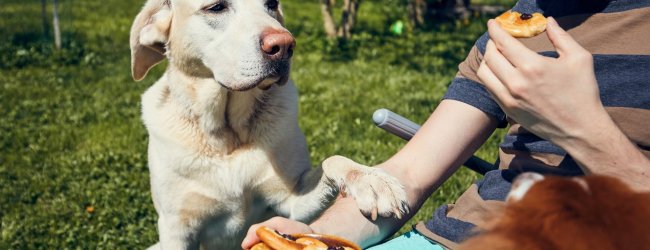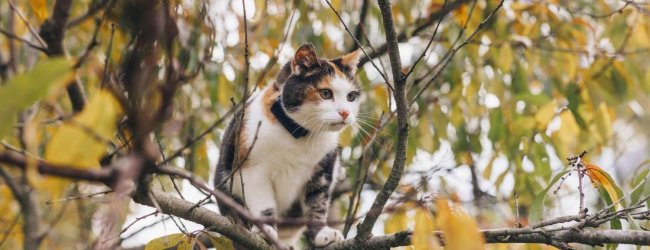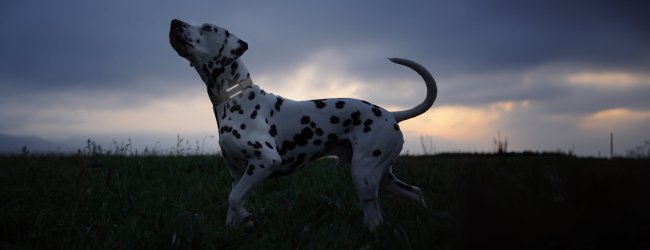7 Tips For A Safe Bonfire Night With Dogs
Learn how you can best care for your dog on Bonfire Night when fireworks might cause your dog to become stressed, fearful, or run away.
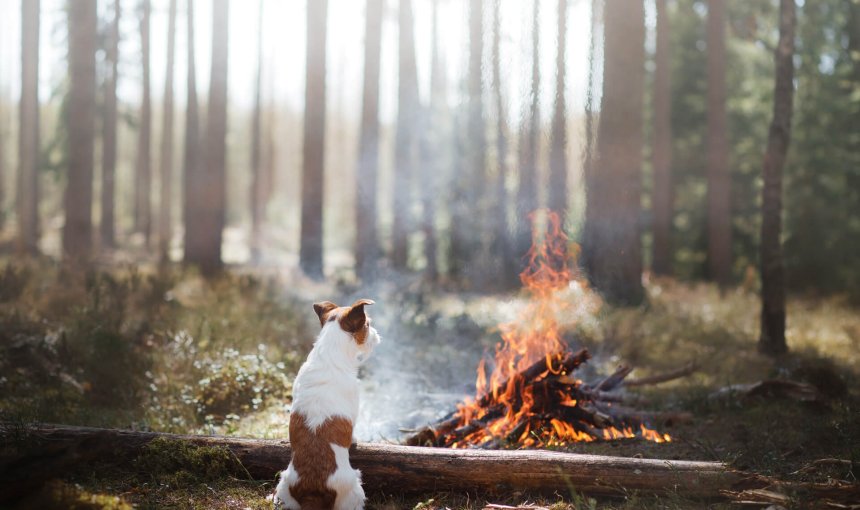
It’s fireworks season again, starting with Bonfire Night and going on (much to our four-legged friends’ grief) up until the New Year. Sadly, half of all dogs suffer from a fear of fireworks. Here are some steps you can take to enjoy Bonfire Night with dogs this year – safely.

Always know your buddy is healthy & safe
Read moreWhat is Bonfire Night?
Bonfire Night – or Guy Fawkes Night – is a November-based UK tradition that takes place each year the 5th of the month. It marks the anniversary of Guy Fawkes and his comrades attempting to blow up the Houses of Parliament. Often called the Gunpowder Plot, this series of fiery events took place in 1605¹. Since then, the British are keen to continue celebrating this day with fire galore. You’ve likely gathered with your neighbors around bonfires, burst some fireworks or sparklers, and gobbled up sweets like toffee apples.
While this might be enjoyable for us human folks, our furry friends often suffer on this day. So here are some helpful tips for how to keep a dog calm on Bonfire Night.
What to do with dogs on Bonfire Night
1. Learn to identify signs of stress in your dog
First, it’s good to make sure you know what stress and fear in dogs look like. This helps you monitor your companion’s behaviour and make sure it doesn’t get worse. Watch out for signs like:
- Hiding behaviors,
- Clinging behaviors,
- Pacing up and down,
- Peeing or pooing inside the house,
- Less obvious signs – like panting, yawning, or licking their nose and lips,
- The ‘whale eye’, where the whites of their eyes show
Fear, stress, and anxiety are key reasons dogs end up running away from home. In times like these, a dog GPS tracker can be a potential lifesaver. Your Tractive device can help you track their every step in real-time – or set up virtual “safe zones” that send you an escape alert if your dog ventures past it.
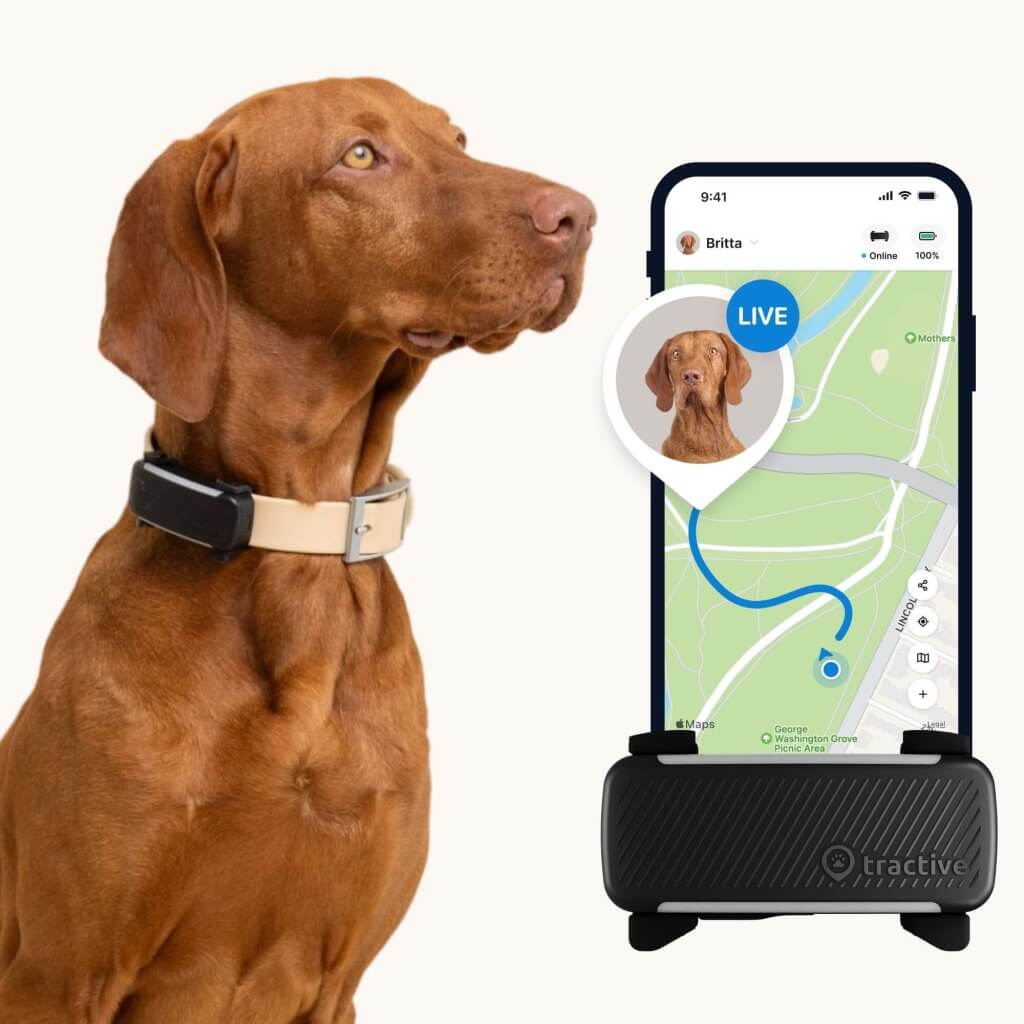
Follow your dog anywhere
Get real-time location information, wherever they go. And find out when they try to make an escape, or just when they go somewhere they shouldn’t, with Virtual Fences.
2. Be calm and reassure your dog during fireworks
Since dogs are scared of fireworks, try to occupy them with something they like. Research suggests that dogs who regularly play with people are less likely to be anxious, so play games with them. Food-dispensing toys are great, but it’s best to be personally involved, so make sure to engage with your dog and the game.
3. Don’t ignore your dog
Regardless of what your dog is fearful of, it is always totally appropriate to reassure them. Contrary to popular belief, this will not “reinforce the fear”. As long as you are not acting out of the ordinary, of course, and forcing them to do something they don’t want to do.
4. Create a ‘safe place’ at home
It could be a crate (if your dog already thinks of it as a safe place), under your bed, a corridor away from windows, wherever your dog is happy. Let them decide. The Tractive GPS also has a feature called Virtual Fence that lets you get alerts in case your dog leaves a space you’ve marked as safe, such as your garden.
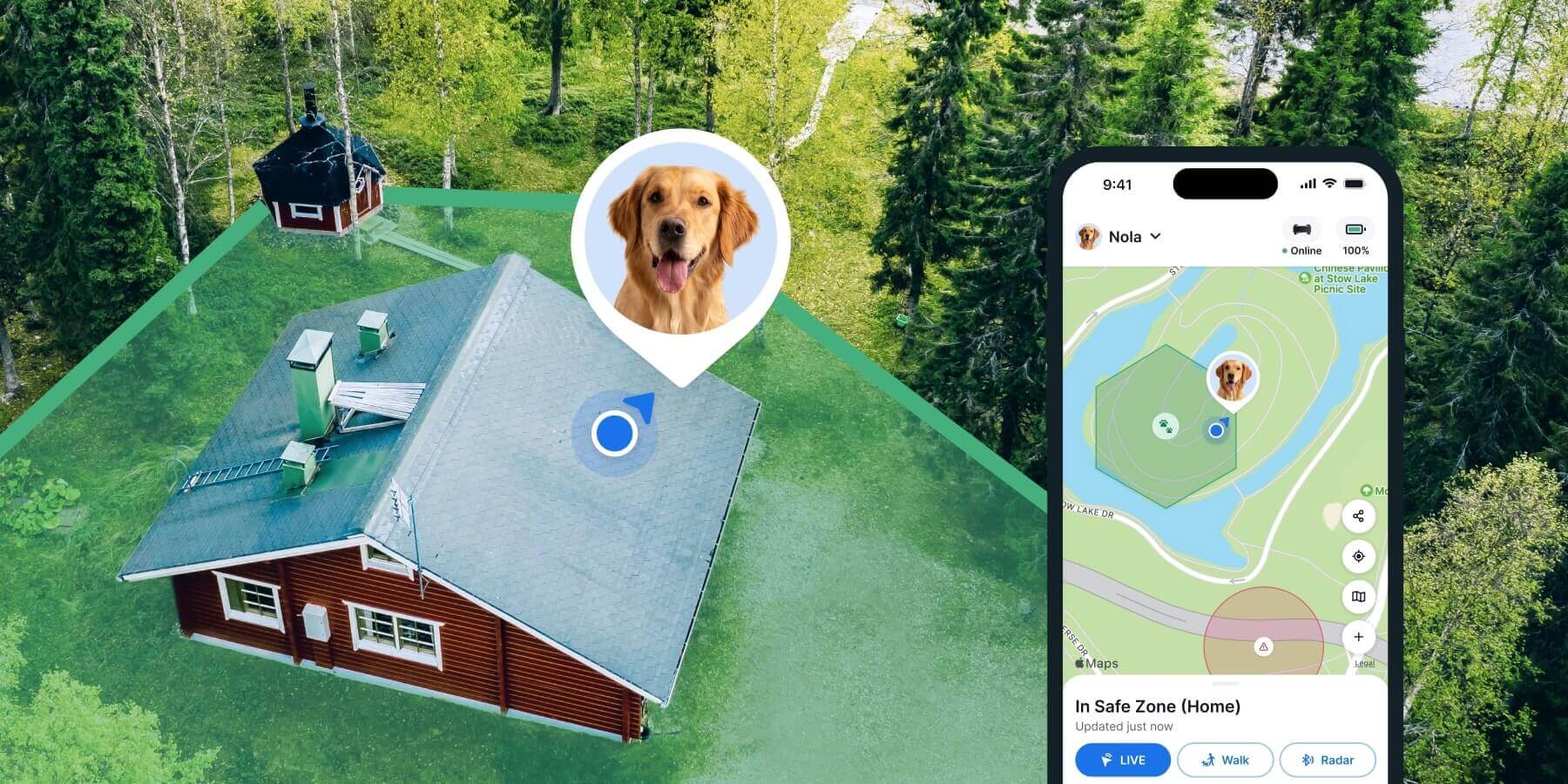
5. Keep TV, radio or music on
Reggae is great and has been known to help dogs stay calm! You can even find ‘Reggae for dogs’ on certain music streaming platforms. Research found that while classical music had an initial calming effect on dogs, after a few days they became bored. Instead, Reggae and soft rock came out as the best genres for reducing stress, barking and heart rates.²
In short: Don’t worry, play Reggae.
6. Provide extra care for old dogs
Fear can also get worse with age. So, if your dog’s fear of noise or fireworks started in your dog’s later years, you should definitely talk to your vet. Medical support could really help, or at least be part of the solution. For example, thyroid issues can also influence fear, anxiety and noise phobia. So, it’s always worth getting your vet to check for these too. Teamwork makes the dream work! Read more about panting and shaking in old dogs.
7. Don’t let your dog outdoors
During and around the Bonfire Night season, avoid letting your dog outdoors at times when fireworks are likely to go off, usually starting from dusk onward. Have your walks and visits to the park earlier in the day. Secure your garden and house, as some dogs may try to escape, and make sure your dog is microchipped and has a collar and tag on.
Finally, get a GPS tracker to avoid worst-case scenarios and find them even if they run off. With just a glance at your phone, you can switch to LIVE mode – and track your running dog’s every move, as they make their every move. Even better, Tractive GPS trackers don’t need a network of compatible devices to work – like an AirTag. They also work over an unlimited range.
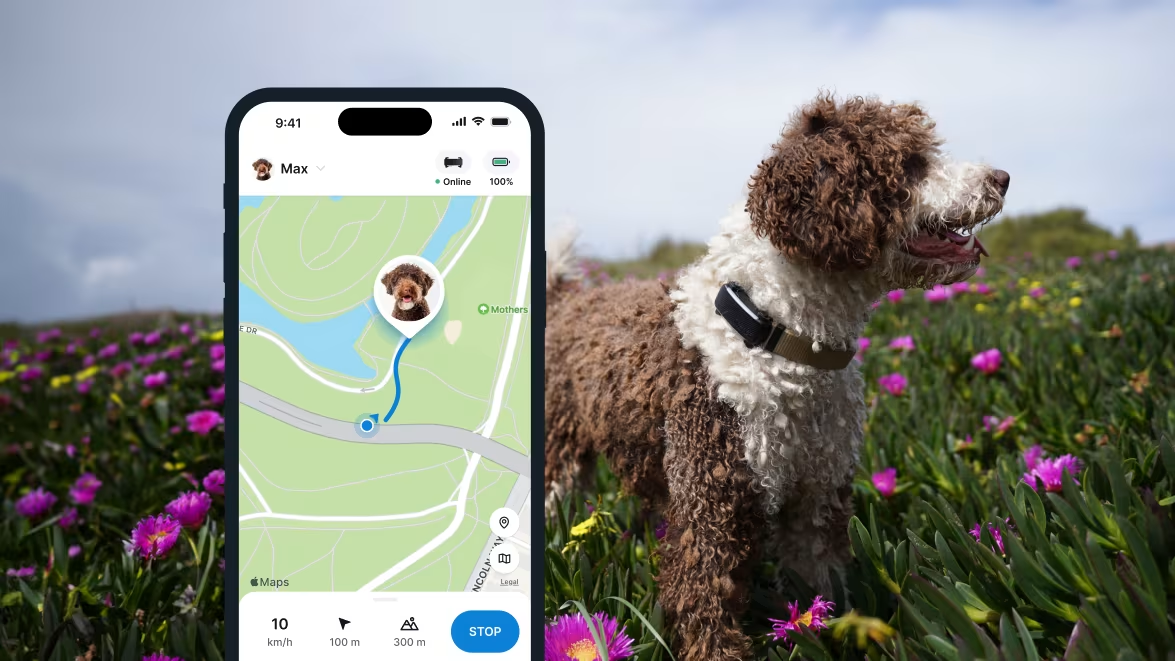
Keep in mind: Microchipping your dog is now a legal requirement in the UK, as of April 2016.
If your dog is very stressed and you need more help, speak to a professional positive trainer or a behavioural expert for help. Be your dog’s safe place, remember you must be there for your dog to make them feel safe. Try not to leave them alone in the evenings.
It’s really worth supporting your dogs in situations like these, because as we say at Tractive: “True love knows no bounds”.
